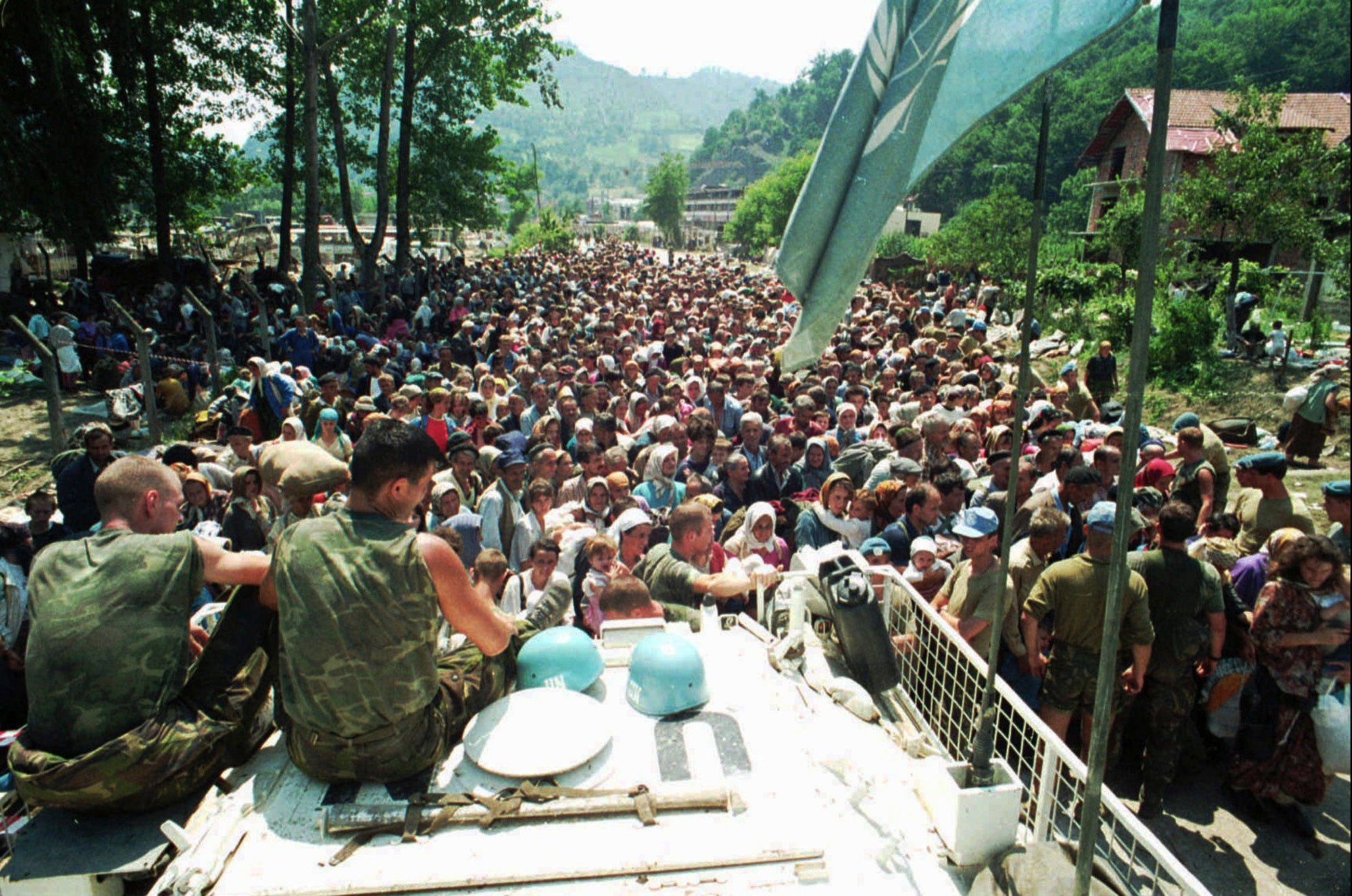Dutch govt offers gesture of appreciation to Srebrenica vets
The Dutch defense minister says the government will pay veterans of a United Nations peacekeeping mission that failed to prevent the massacre of thousands of Bosnian Muslims by Bosnian Serbs in 1995 5,000 euros each as a “gesture and token of appreciation” for their service in horrific circumstances

Your support helps us to tell the story
From reproductive rights to climate change to Big Tech, The Independent is on the ground when the story is developing. Whether it's investigating the financials of Elon Musk's pro-Trump PAC or producing our latest documentary, 'The A Word', which shines a light on the American women fighting for reproductive rights, we know how important it is to parse out the facts from the messaging.
At such a critical moment in US history, we need reporters on the ground. Your donation allows us to keep sending journalists to speak to both sides of the story.
The Independent is trusted by Americans across the entire political spectrum. And unlike many other quality news outlets, we choose not to lock Americans out of our reporting and analysis with paywalls. We believe quality journalism should be available to everyone, paid for by those who can afford it.
Your support makes all the difference.The Dutch government said Wednesday that it will pay veterans of a United Nations peacekeeping mission that failed to prevent the massacre of thousands of Bosnian Muslims by Bosnian Serbs in 1995 5,000 euros each as a "gesture and token of appreciation" for their service in horrific circumstances.
The payment announced by the defense minister is one element of a government reaction to a study into the experiences of the roughly 850 troops who made up the Dutchbat III peacekeeping force. They were in Srebrenica when it was overrun by more heavily armed Bosnian Serb fighters led by Gen. Ratko Mladic who has been convicted of genocide by a U.N. tribunal for his role in the notorious massacre of more than 8,000 that followed. Mladic is appealing the conviction.
The study made several recommendations, including that the government make a “collective gesture” to address what it called “the perceived lack of recognition and appreciation, given the exceptional circumstances in which the near-impossible has been asked” of the Dutch peacekeepers.
The Netherlands has long wrestled with the legacy of the massacre. The government of former Prime Minister Wim Kok resigned in 2002 after a report harshly criticized Dutch authorities for sending soldiers into a danger zone without a proper mandate or the weapons needed to protect about 30,000 refugees who had fled to the Dutch base in eastern Bosnia.
In 2019, the Dutch Supreme Court ruled that the Netherlands was partially liable in the deaths of some 350 Muslim men murdered by Bosnian Serb forces during the massacre.
The Netherlands’ highest court ruled that Dutch peacekeepers evacuated the men from their military base near Srebrenica on July 13, 1995, despite knowing that they “were in serious jeopardy of being abused and murdered” by Bosnian Serb forces.
The U.N. also has been criticized for failing to authorize NATO air strikes to support the lightly-armed Dutch troops in July 1995 as they came under attack.
“For some of the Dutchbat III veterans, and indirectly the home front, the personal and social consequences of the deployment persist,” Defense Minister Ank Bijleveld-Schouten wrote in a letter to parliament.
Prime Minister Mark Rutte made the same point in a video message last year marking the 25th anniversary of the massacre.
Rutte highlighted the suffering of Bosnian Muslims who lost loved ones, but also mentioned “the men and women of the Dutch U.N. battalion who felt powerless in July 1995 and who are still haunted by those memories.”
The director of the Srebrenica Memorial Center in the Bosnian town did not have any immediate reaction, saying he first needed to study the Dutch minister’s explanation. An organization of Dutchbat III veterans also did not immediately respond to a request for a reaction.
____
Sabina Niksic in Sarajevo contributed.